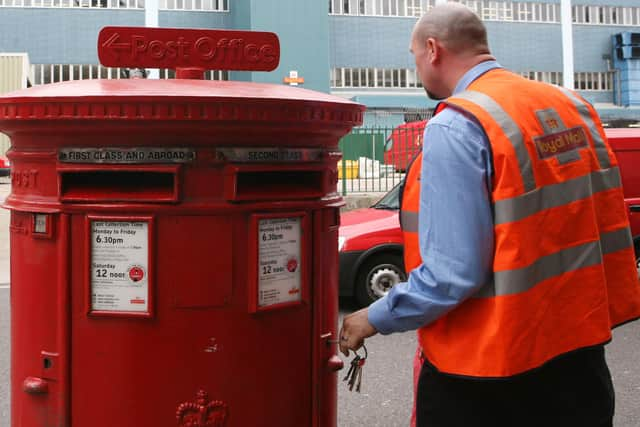Vulnerable groups 'let down' by Scottish postal system
The report, Delivering for all, exposes barriers to accessing mail for certain people, denying them access to important information and services from banks, public services, lawyers and medical services.
The groups affected include asylum seekers, homeless people, those living in remote and rural areas, domestic abuse survivors and the Gypsy/Traveller community.
Advertisement
Hide AdAdvertisement
Hide AdProblems encountered by these groups include intercepted mail, delayed delivery, lack of collection points and affordability.


CAS said the unwillingness of government agencies and organisations to accept alternative addresses where people do not have a permanent postal address or have frequent changes of address was also “of great concern”.
The report said the pandemic had significantly affected the way that people in Scotland access postal services, which has had further impacts on those who were already at risk of not receiving post and parcels.
It pointed out the pandemic had led to major changes for many people who are without permanent housing.
Many have been moved into temporary accommodation without shared facilities, mainly B&B and hotel accommodation, to reduce the risk of virus transmission, making it difficult for them to receive post.
Meanwhile, stakeholders who work with asylum seekers reported that many of the support or legal agencies used by their clients closed their offices during the lockdowns and mail was collected infrequently.
This caused potential difficulties where mail was time sensitive, and the information contained in it related to applications for benefits, housing or asylum.
Similarly, both survivors of domestic abuse and those within the gypsy and traveller communities encountered difficulties in having post delivered to an alternative address.
Advertisement
Hide AdAdvertisement
Hide AdCAS spokesperson Gillian Fyfe said: “Regardless of any strides that have been made in digital communication, post is still an essential service across all communities in Scotland.
“The barriers we have identified include the fact that people who don’t have a permanent address have to arrange for their mail to be delivered to alternative addresses.
"Many organisations refuse to send post, which may be vital or time sensitive to those addresses, and this can increase the chances of post going missing. All of this can cause detriment for these consumers either financially, personally or in their ability to access essential support services.”
She added: “The findings relating to domestic abuse survivors are particularly distressing, as survivors of domestic abuse can be at risk of perpetrators intercepting post.
"A more flexible system allowing access to alternative pick up or collection points would provide more secure access to post for this group.
“Restricted access to mail is a significant problem for all the groups considered in this research. These are people we should be making sure are supported and instead they are being left behind.”
The report has made a series of recommendations, including the Royal Mail reviewing the affordability of its redirection services and allowing people to use pick up points in the community – and government agencies sending back up copies of important correspondence to a nominated person or secure location.
A Royal Mail spokesperson said: “Royal Mail understands the vital role mail plays in keeping vulnerable communities connected. We work hard to make our services both affordable and available to all.”
A message from the Editor:
Thank you for reading this article. We're more reliant on your support than ever as the shift in consumer habits brought about by Coronavirus impacts our advertisers.
If you haven't already, please consider supporting our trusted, fact-checked journalism by taking out a digital subscription.
Comments
Want to join the conversation? Please or to comment on this article.
